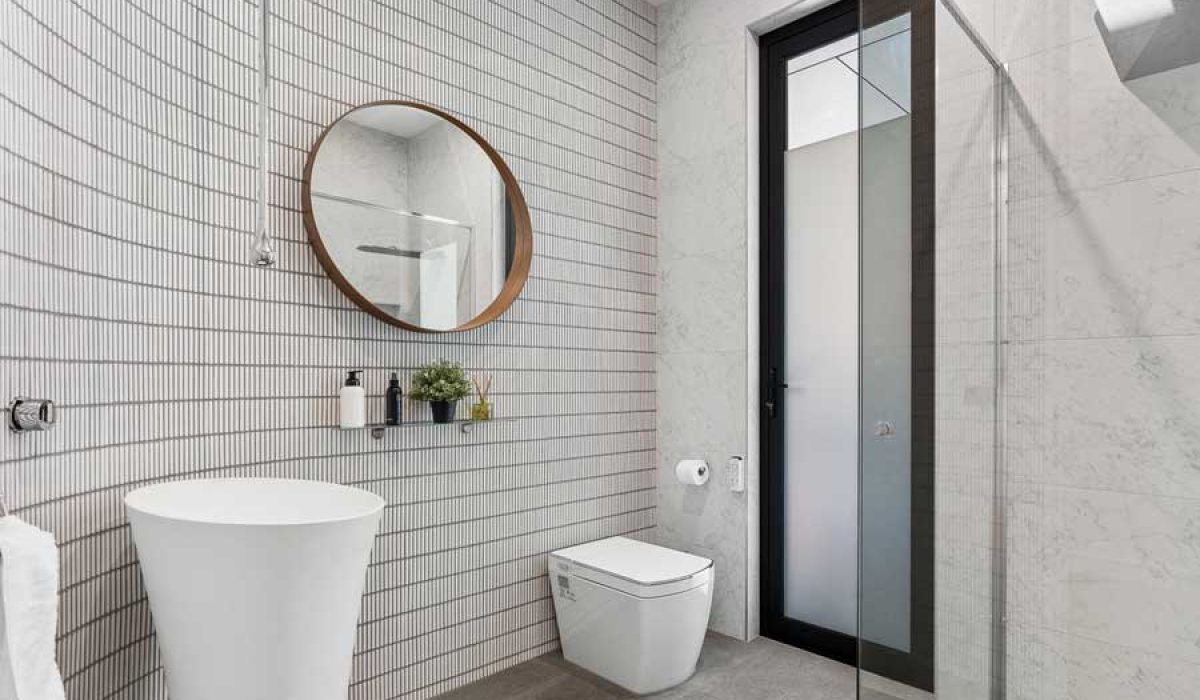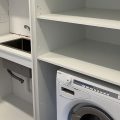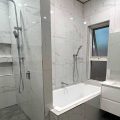Are you planning to renovate your bathroom but unsure where to start?
Bathroom renovations can be a daunting task, especially when you’re trying to figure out the correct order of steps to ensure a smooth process.
Renovating your bathroom is a big project that can significantly enhance your home’s value and functionality. Whether you’re updating an old bathroom or completely remodeling, having a clear plan is essential.
In this guide, we will walk you through the essential steps to bathroom renovations, ensuring your project runs smoothly and efficiently.
- Planning and Design
- Demolition
- Plumbing and Electrical Work
- Structural Work and Framing
- Installing Bathroom Features
- Tiling and Flooring
- Finishing Touches
Planning and Design
Assessing Your Needs
Before you dive into the actual renovation work, take some time to assess your needs. What are the main reasons for your bathroom renovation? Do you need more space, better functionality, or simply a fresh look? Make a list of must-haves and nice-to-haves to guide your design decisions.
Budgeting and Financing

One of the most critical aspects of any renovation is setting a budget. Determine how much you’re willing to spend and allocate funds for each part of the project. Consider potential financing options if needed, such as personal loans or home equity lines of credit.
Choosing a Melbourne Builder
Finding the right builder is crucial for a successful bathroom renovation. Look for a reputable Melbourne builder with experience in bathroom renovations. Check reviews, ask for recommendations, and interview potential builders to find the best fit for your project.
Bathroom Demolition
Once you have a solid plan and design in place, it’s time to start the demolition process. Remove old fixtures, tiles, and any other elements that will be replaced. Be prepared for some dust and debris, and ensure you have proper disposal methods in place.
Plumbing and Electrical Work
Hiring Professional Trades
For plumbing and electrical work, it’s essential to hire licensed professionals. They will ensure that all installations meet local building codes and safety standards. This step includes installing new pipes, wiring, and any necessary plumbing fixtures.
Inspections and Approvals
After the initial plumbing and electrical work, inspections are typically required to ensure everything is up to code. Schedule these inspections early to avoid delays in your renovation timeline. Once approved, you can proceed with the next steps.
Structural Work and Framing
Next, any structural changes or framing should be completed. This might include building new walls, reinforcing existing structures, or creating new openings for windows or doors. Ensure that all structural work is done to a high standard to avoid future issues.
Installing Bathroom Features
Bath and Shower
Now it’s time to install the main bathroom features, starting with the bath and shower. Choose high-quality fixtures that match your design and meet your functional needs. Proper installation is crucial to prevent leaks and ensure longevity.
Vanities and Cabinets
Next, install the vanities and cabinets. These elements provide essential storage space and contribute significantly to the overall look of your bathroom. Consider custom options for a perfect fit and to maximize storage.
Lighting and Ventilation
Good lighting and ventilation are key to a comfortable bathroom. Install proper lighting fixtures, including task lighting around mirrors and ambient lighting for a relaxing atmosphere. Ensure adequate ventilation to prevent moisture buildup and mold growth.
Tiling and Flooring
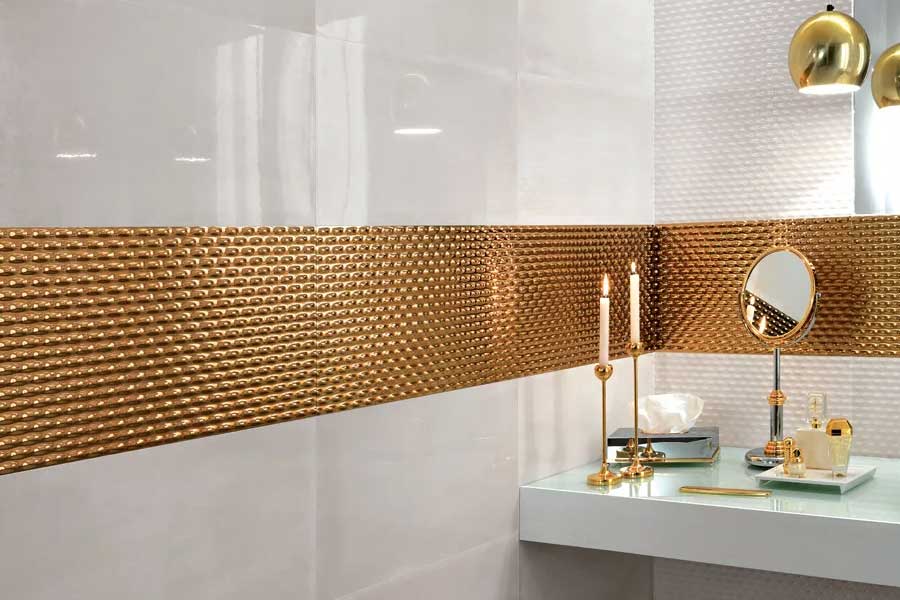
Choosing Tiles and Tilers
Choosing the right tiles can make a big difference in your bathroom’s appearance. Work with professional tilers to ensure a flawless installation. Consider factors like durability, slip resistance, and maintenance when selecting your tiles.
Installation Process
The installation process involves laying the tiles on the floors and walls. It’s important to follow a precise method to ensure even spacing and alignment. Grouting and sealing the tiles properly will enhance their longevity and appearance.
Finishing Touches
Painting and Decorating
With the major installations complete, it is time to add the some finishing touches. Painting the walls and adding decorative elements can bring your design vision to life. Choose colors that complement your tiles and fixtures for a cohesive look.
Fixtures and Accessories
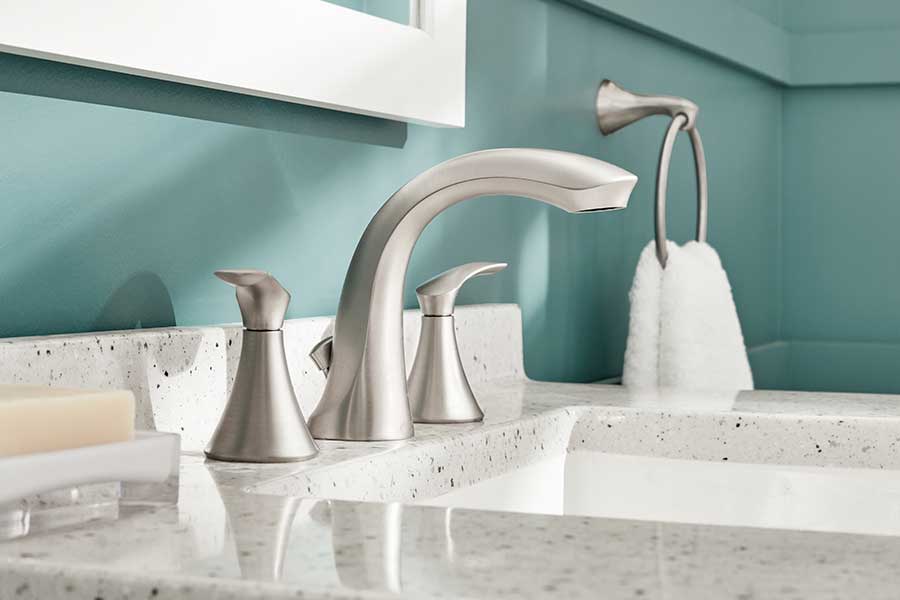
Finally, install fixtures and accessories such as mirrors, towel racks, and soap dispensers. These small details can enhance both the functionality and aesthetics of your bathroom. Make sure everything is securely mounted and easily accessible.
Renovating your bathroom can be a rewarding project when done correctly. By following the proper order of steps, from planning and design to the final touches, you can achieve a stunning and functional bathroom. Remember to choose a reliable Melbourne builder, work with professional trades, and pay attention to details to ensure a successful renovation.

